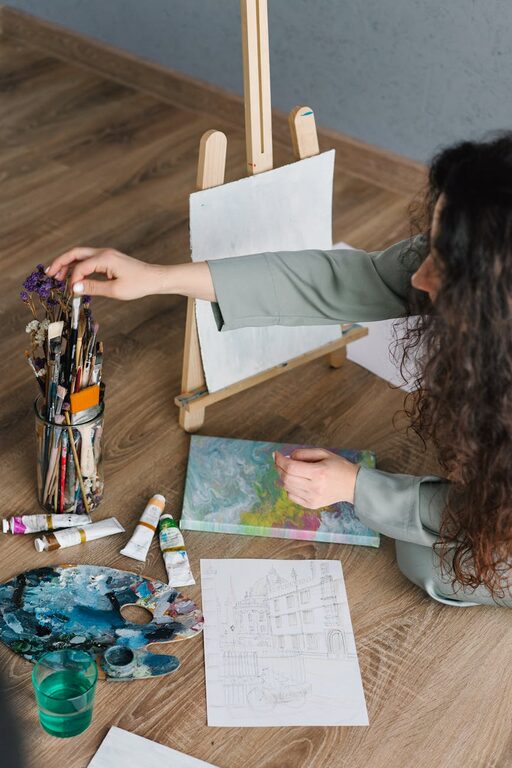Creativity isn’t just for artists or writers—it’s a skill that anyone can develop and use every day. Whether you want to solve problems more effectively, approach your work with fresh ideas, or simply enjoy expressing yourself, practicing creativity regularly can make a big difference. The good news is that you don’t need special training or lots of free time. Small, simple actions can help you build a more creative mindset and boost your imaginative abilities.
In this post, we’ll explore practical tips and habits to help you nurture your creativity every day, no matter your lifestyle or interests.
Why Practice Creativity Daily?
Creativity often feels like something that happens in bursts—moments of inspiration that strike unexpectedly. But creativity can be cultivated like a muscle. Practicing regularly helps you:
– Improve problem-solving skills
– Increase adaptability
– Reduce stress and boost mood
– Spark innovation in work and personal projects
– Enhance communication and self-expression
By dedicating just a few minutes or small tasks to creative activities, you can create a habit that feeds your brain with new perspectives.
Simple Ways to Boost Creativity Every Day
Here are some easy-to-implement methods that fit into busy schedules and encourage creative thinking.
1. Keep a Daily Journal
Writing daily helps clear your mind and generate new ideas.
– Spend 5-10 minutes jotting down thoughts, dreams, or observations.
– Don’t worry about grammar or style—just let your ideas flow.
– Try prompts like “What inspired me today?” or “One new thing I want to try.”
Over time, your journal becomes a treasure trove of creative sparks and self-reflection.
2. Take Regular Breaks From Screens
Our minds need downtime to recharge creativity.
– Step away from devices for short periods each day.
– Use this time to notice your surroundings, people-watch, or daydream.
– Even a 5-minute walk or stretch can help your brain generate fresh connections.
This practice encourages mindfulness, reduces mental clutter, and opens space for new ideas.
3. Explore New Activities or Hobbies
Trying something different helps you see the world from new angles.
– Experiment with drawing, cooking a new recipe, learning an instrument, or gardening.
– Don’t aim for perfection; focus on the joy of discovery.
– Join workshops or online classes to mix creativity with social time.
New experiences often spark creative thinking and give you tools to apply in other areas of life.
4. Practice Mindful Observation
Creativity often starts with noticing details others miss.
– Choose an object or scene and observe it carefully for a few minutes.
– Write or sketch what you see, focusing on colors, shapes, sounds, or smells.
– Try this exercise daily to sharpen your perception and appreciation.
This habit can improve your ability to generate vivid, original ideas.
5. Use Creative Prompts or Challenges
Sometimes, a simple prompt is all you need to get started.
– Search for daily creativity challenges online or in apps.
– Examples include “Draw a tree in five different styles” or “Write a six-word story.”
– Setting a small goal can push you out of creative blocks.
Challenges provide structure and motivation, making creativity a fun routine.
6. Collaborate and Share Ideas
Creativity thrives in connection with others.
– Discuss projects with friends or colleagues.
– Join online forums or local groups focused on creative interests.
– Sharing feedback and brainstorming together can multiply inspiration.
Collaboration exposes you to diverse viewpoints and fuels your own creativity.
7. Declutter Your Creative Space
An organized environment can enhance creative flow.
– Keep your workspace tidy and stocked with essential tools.
– Personalize it with items that inspire you—photos, artwork, or plants.
– A welcoming space invites more frequent creative sessions.
Your surroundings impact your mindset; a calm space helps ideas flourish.
Tips for Staying Consistent
Making creativity a daily habit may feel challenging at first. Here are some ideas to help you stay on track:
– Set aside a specific time each day for creative practice.
– Combine creativity with another habit, like journaling after breakfast.
– Celebrate small wins to build motivation.
– Be kind to yourself when creativity feels slow—patience is key.
– Mix up activities to keep things fresh and prevent boredom.
Remember, daily creativity isn’t about producing masterpieces, but about enjoying the process and keeping your mind flexible.
Conclusion
Practicing creativity every day is simpler than you might think. By incorporating small habits like journaling, mindful observation, and trying new activities, you can nurture your creative potential. Over time, these daily practices can help you see the world differently, solve problems with ease, and bring more joy to your life. Start today with just a few minutes—you might be surprised where your imagination takes you!



